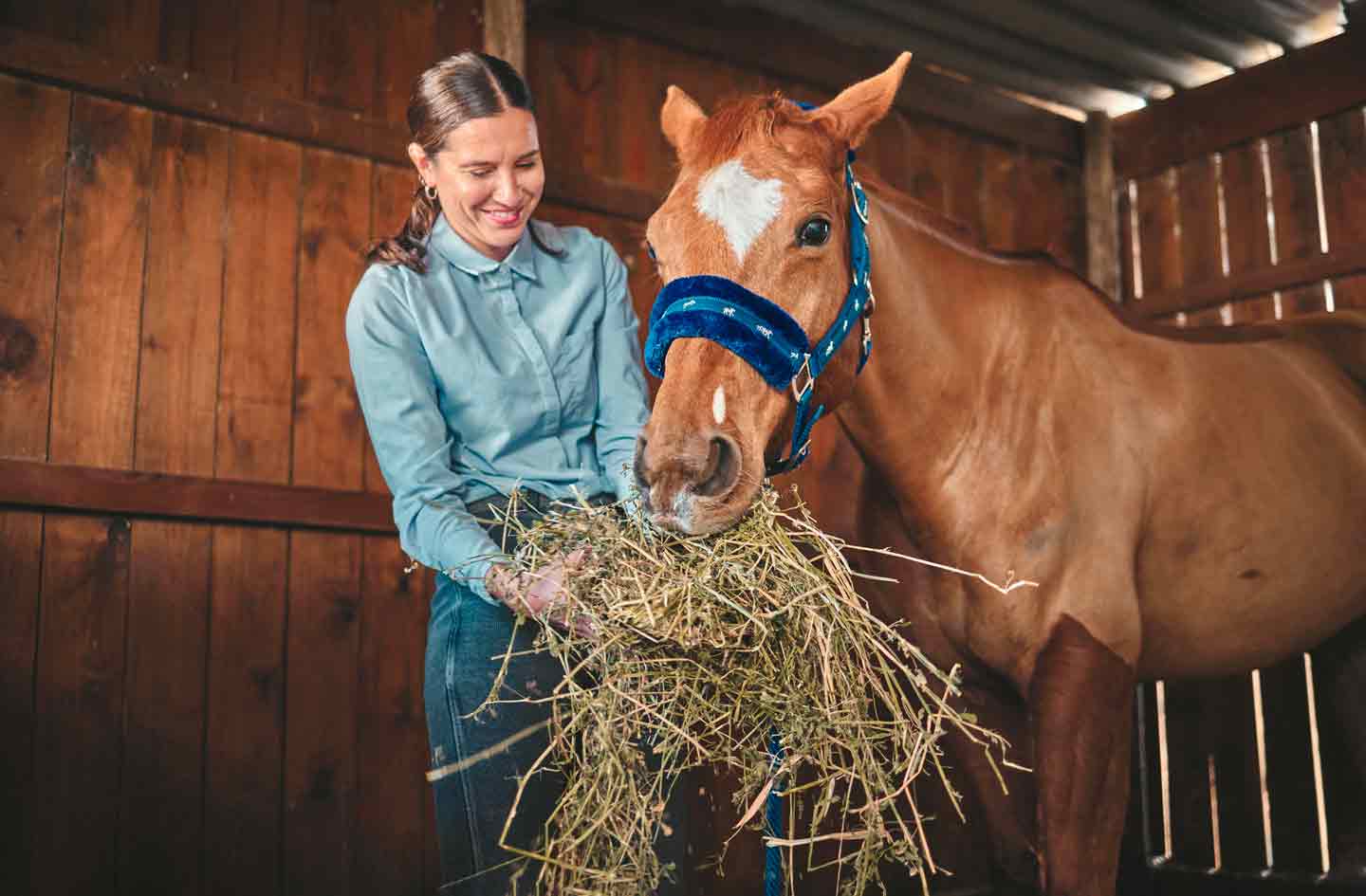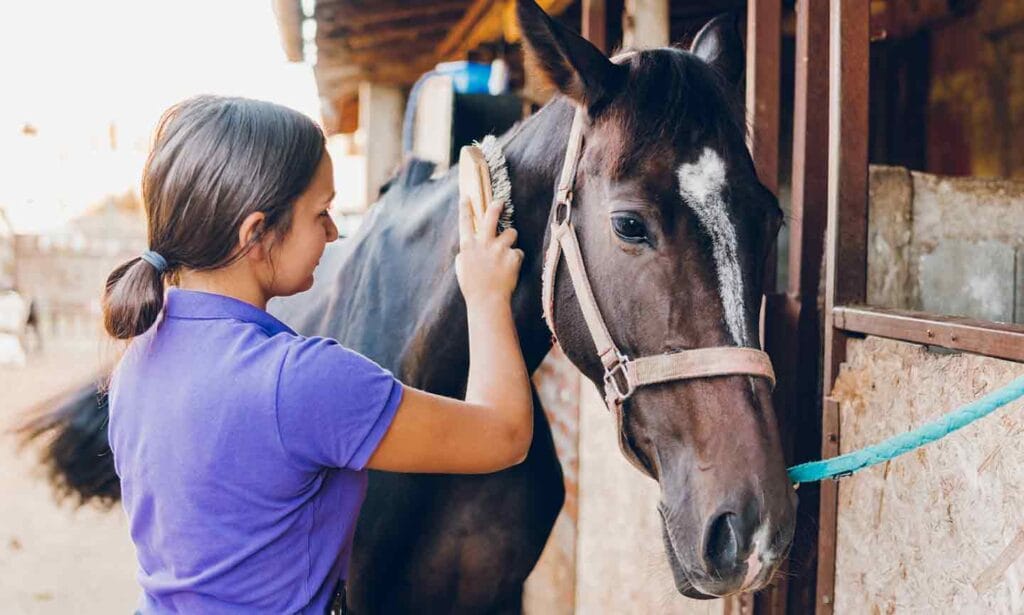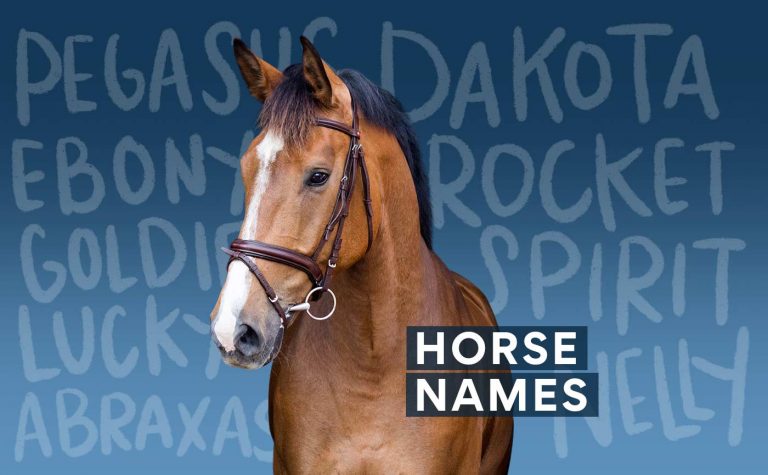Whether you’re planning to buy your very first horse for trail riding or you’re an experienced equestrian who’s ready to purchase a winning racehorse, it’s important to know that horse ownership is expensive. From the initial purchase price (which might shock you) to the upkeep costs, expect to spend a lot of money for high-quality products and care.
The good news? Horses are totally worth every penny.
Here’s a breakdown of the expenses associated with horse care, along with some average costs to give you an idea of what it takes financially to own horses.
In This Guide:
Initial Costs of Buying a Horse
The first major expense associated with getting a new horse is the purchase price of the horse.
“The initial cost of a horse can range from $500 for an untrained horse up to hundreds of thousands for high-level show horses,” says Jennifer Schott (Fordham), DVM, associate veterinarian at Lineberger Veterinary Hospital in Gastonia, North Carolina.
On average, a horse might cost $1,500–$10,000. However, the price of a horse varies widely based on factors like their:
- Pedigree
- Bloodline
- Level of training
- Age
- Conformation (body shape and structure)
- Showing experience
Even the location where you purchase a horse can play a role in their price.
A horse’s breed, and the demand for it, can impact their price too. Some of the most expensive horse breeds, which can cost well over $10,000 include:
- Thoroughbred
- Arabian
- Friesian
- Trakehner
- Hanoverian
- Andalusian
- Oldenburg
- Akhal-Teke
- Dutch Warmblood
- Holsteiner
Think about the type of horse you want. For example, if you’re in search of one you’ll use for competing in equestrian sports, you may want a more expensive pedigree horse with experience and awards.
In addition, consider whether you want to have your equine vet examine a horse before you buy them. This is known as a pre-purchase examination, and the cost can be around $250 or more.
Other Costs Associated With Buying a Horse
In addition to the price of the horse, there are other initial costs, such as the following.
Tack
Tack is the equipment you’ll need to ride or handle your horse. It includes:
- Bridle: $40–$100+
- Saddle: $100–$1,000+
- Saddle pad: $10–$50+
- Girth or cinch: $20–$50+
- Stirrups: $20–$50+
- Stirrup leathers: $40–$50+
- Halter: $10–$50+
- Lead rope: $10–$50+
The prices for these supplies vary based on brand, quality, and materials. “If you are buying show tack, you could spend up to $5,000 or more for what you need to show,” says Dr. Schott.
Grooming Supplies
Grooming supplies can also add up. Between tack and grooming supplies, Dr. Schott says you can expect to spend $300–$1,000.
Tools for grooming your horse include:
- Curry comb: $5+
- Dandy brush: $10–$40
- Finishing brush: $5+
- Mane and tail brush: $5–$20
- Face brush: $10+
- Hoof pick: $5+
- Clippers: $20+
Boarding Facility
Horse boarding costs include the rental or maintenance of a shelter, paddock, and pasture for your horse.
If you have your own barn, you might spend $100–$600 per month. If you board your horse elsewhere, the cost will depend on whether you opt for full-service, partial, self-care, or pasture board, and the costs could range from hundreds to thousands per month.
“Boarding a horse on a pasture with minimal care can start around $400 per month depending on your area. Boarding a horse at a training/show barn with a stall and full care can average from $1,000–$2,000 or higher per month,” says Dr. Schott.

Maintenance Costs of Horse Ownership
Maintenance costs are those you’ll incur throughout the life of your horse. They are recurring costs you’ll need to cover at varying frequencies for your horse’s health, including everything from feed and boarding to vet care and farrier visits.
Here’s a breakdown of what to generally expect.
Weekly Costs
On a weekly basis, you’ll need to focus on giving your horse clean water and healthy food. The amount of food your horse will consume will depend on factors like their size, age, and activity level.
Your veterinarian might recommend a particular diet for your horse along with specific supplements that will also affect the amount you’ll pay to keep your horse nourished and energized.
“Feed for one horse can average from $200–$500 per month depending on what type of feed and hay they require,” says Dr. Schott. This breaks down to about $50–$125 per week.
Monthly Costs
As noted, boarding fees can range from $400–$2,000 or more monthly, according to Dr. Schott. Again, this will depend on the type of boarding you choose.
Annual Costs
Having your horse examined regularly by a veterinarian is key to helping them maintain a strong, healthy body. Even if your horse isn’t exhibiting symptoms, checkups are important, as they can reveal problems and enable you to give the right treatments promptly.
Also, vets can provide deworming and other preventive care to help avoid certain ailments, and can share tips on how to keep your horse at an appropriate body weight to help reduce the risk of various issues.
Routine veterinary care for a horse can average $350–$600 annually. Of course, your vet bills will be higher if you have to treat for a condition, such as founder, for example, or your horse needs to undergo a procedure. (More on that under Unexpected Costs below.)
“Routine vaccines and dental care will average around $150–$200 every six months for vaccinations and checkups,” says Dr. Schott. She adds that many horses need a yearly dental float, during which their teeth are filed to smooth them and fix misalignments, which can range from $200–$300.
Year-Round Costs
Farrier services are an integral component of hoof care. A farrier knows how to clean and trim a horse’s hooves, shoe them properly, and make sure they’re balanced. They can also treat wounds and injuries.
Dr. Schott says, “Farrier care will range from $60–$300 every five to eight weeks, depending on if your horse needs shoes and the type of shoes they need.”
Unexpected Costs
Horses are prone to various injuries and illnesses, which can incur large expenses. In the case of surgeries and emergency care, you may end up spending thousands. For example, according to Dr. Schott, emergency colic surgery can cost up to $10,000.
In addition, everyday supplies, from tack to grooming tools, can break and need to be replaced.
Therefore, it’s wise to have an emergency fund with at least $2,000 that you can tap into when you need it.
Having insurance can also give you peace of mind. Major medical and surgical insurance can help cover veterinary costs, while mortality insurance can provide remuneration if your horse dies. Liability insurance can protect you if your horse injures someone or damages their property.
Insurance rates vary based on level of coverage, your location, and other factors. For example, major medical insurance might cost $200 or more per year, while the annual cost of mortality insurance might be a percentage (e.g., 3%) of your horse’s value. Liability insurance premiums will be based on how much coverage you want, so they can cost hundreds per year.
Costs of Training and Riding Lessons
If you hire a trainer for your equine companion, the price will depend on the type and amount of training your horse needs (e.g., basic training versus dressage training). You may be charged an hourly or monthly rate that might be around $50 per hour or $500 per month.
Costs vary depending on whether you need horse riding lessons or want to be trained to compete with your horse, too. For example, private riding lessons might cost up to $100 per hour.
Costs Summary
The total cost of owning a horse includes a combination of initial purchase costs, ongoing maintenance, and potential unexpected expenses. For a rough estimate:
- Initial Costs:
- Horse Purchase: $500–$100,000+
- Pre-Purchase Examination: $250+
- Tack: $250–$5,000+
- Grooming Supplies: $60–$140+
Total Initial Cost Estimate: $990–$105,390+
- Ongoing Costs (per year):
- Boarding: $1,200–$24,000
- Feed: $2,400–$6,000
- Routine Veterinary Care: $350–$600
- Vaccinations and Dental Care: $300–$400
- Farrier Services: $390–$3,000
Total Ongoing Annual Cost Estimate: $4,640–$34,000
- Unexpected Costs:
- Emergency Colic Surgery: Up to $10,000
- Emergency Fund: $2,000+
- Insurance: $200+ per year
These estimates provide a general idea of the costs associated with horse ownership. Actual expenses can vary widely based on location, specific needs, and individual circumstances.
More About Horses
Share:













